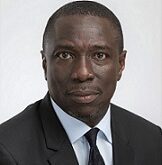Education is one of the surest ways to improve life in West Africa. Without even a primary education, children are likely to remain impoverished for the rest of their lives.
Many million school-age children in West Africa are working instead of going to classes. In addition to facing a lifetime of poverty, uneducated children are vulnerable to being trafficked to neighboring countries, where they are forced into labour. But knowing how to read, write and do basic arithmetic empowers youth to make healthy, informed choices. Educated West African girls are less likely to be married before their teen years, undergo female genital mutilation, experience an unwanted pregnancy or contract HIV.
Early childhood care and education (ECCE) remains a luxury for most African children. Although the pre-primary gross enrolment ratio has generally improved since the beginning of the 1990s, the majority of African countries have a very low pre-primary enrollment of less than 10 percent. However, gross enrollment levels vary greatly in the region, from 90 percent in Mauritius to less than 1 percent in Democratic Republic of Congo and Djibouti. In most African countries early childhood care and education is often provided by private institutions, and is concentrated in urban and wealthy areas, where parents can afford the costs and tend to be more aware of its benefits.
Africa faces many obstacles in its efforts to improve early childhood education, such as a lack of resources, inequitable access to services, the absence or insufficiency of mechanisms to ensure quality in training and provision, and the low status of early childhood education personnel. Poverty, conflicts and prevalence of HIV/AIDS make the region, particularly vulnerable and obstruct the building of a sustainable, quality early childhood provision. However, African governments are increasingly attempting to mobilize private, voluntary and community-based partners to promote and strengthen early childhood education.
Forty percent of school-aged children in Africa do not attend primary school and 36 million African children have never stepped foot in a classroom. To cope with the growing demand for primary education African countries needs to dramatically increase the capacity of their school systems. In 1987, there were 73 million children in school; in 2011, the figure had increased to 106 million. Nearly 150 million children need to find a place in school.
The quality of education remains a major challenge and repetition and drop-out rates are high. More than one student in ten repeats at least one grade in primary school in more than half of all countries in sub-Saharan Africa. And many studies show that repeaters do not learn from duplication and either keep on repeating or drop out before having acquired basic learning skills. Today, nearly 40 million African children are out of school, and the majority of them are girls.
 PH Mundial – Port Harcourt Online Newspaper News Across The Region
PH Mundial – Port Harcourt Online Newspaper News Across The Region



